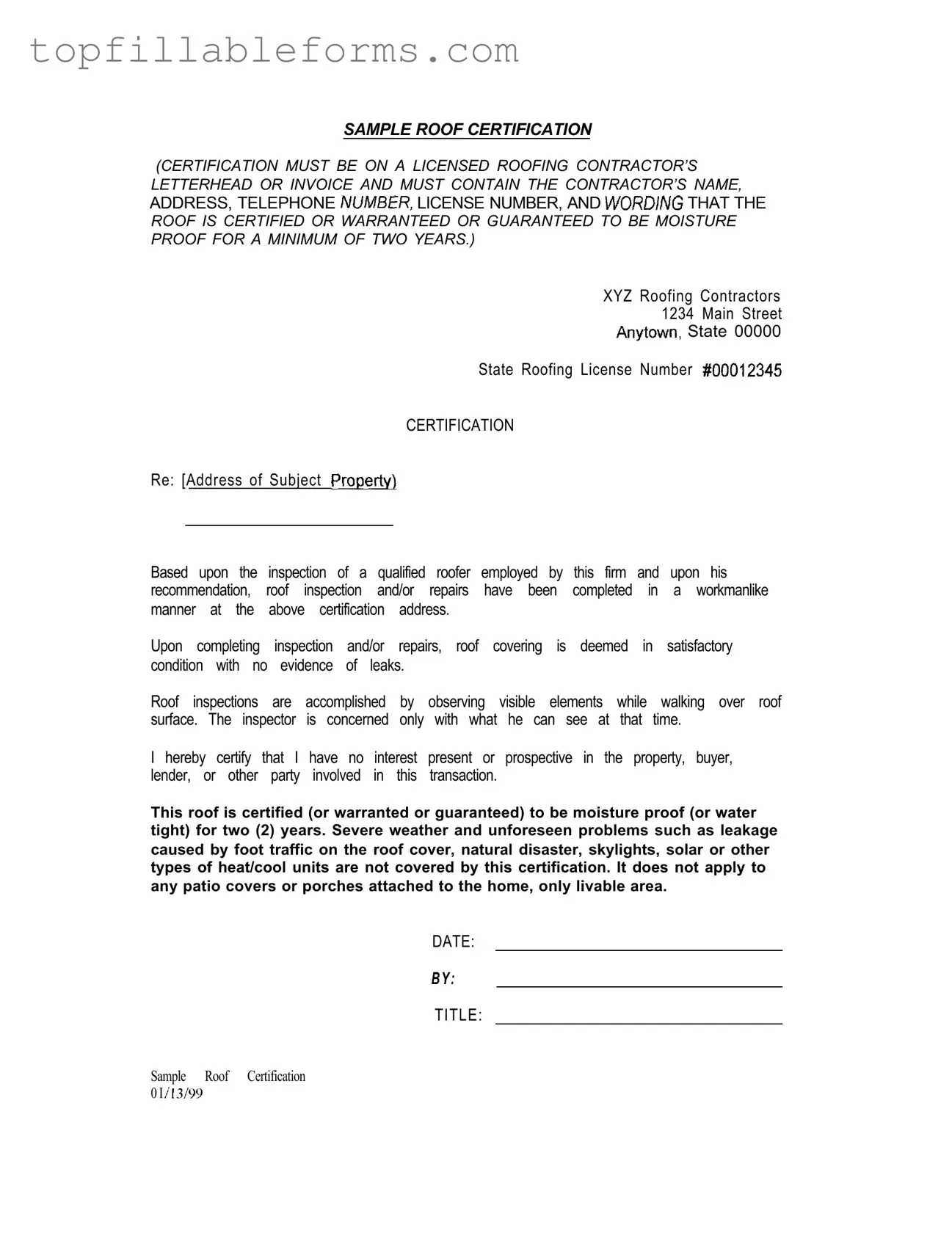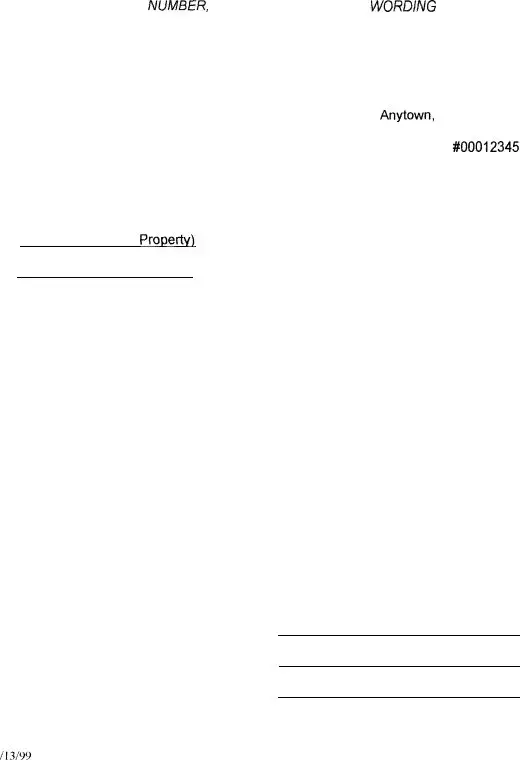Printable Sample Roof Certification Form in PDF
The Sample Roof Certification form serves as an official document that verifies the condition of a roof after inspection by a licensed roofing contractor. This certification, which must be presented on the contractor's letterhead or invoice, confirms that the roof is moisture-proof for a minimum of two years, provided there are no unforeseen issues. Key details, including the contractor's contact information and license number, are essential components of this certification.
Open Sample Roof Certification Editor Here

Printable Sample Roof Certification Form in PDF
Open Sample Roof Certification Editor Here
Finish the form now and be done
Finish your Sample Roof Certification online by editing, saving, and downloading fast.
Open Sample Roof Certification Editor Here
or
▼ PDF File

